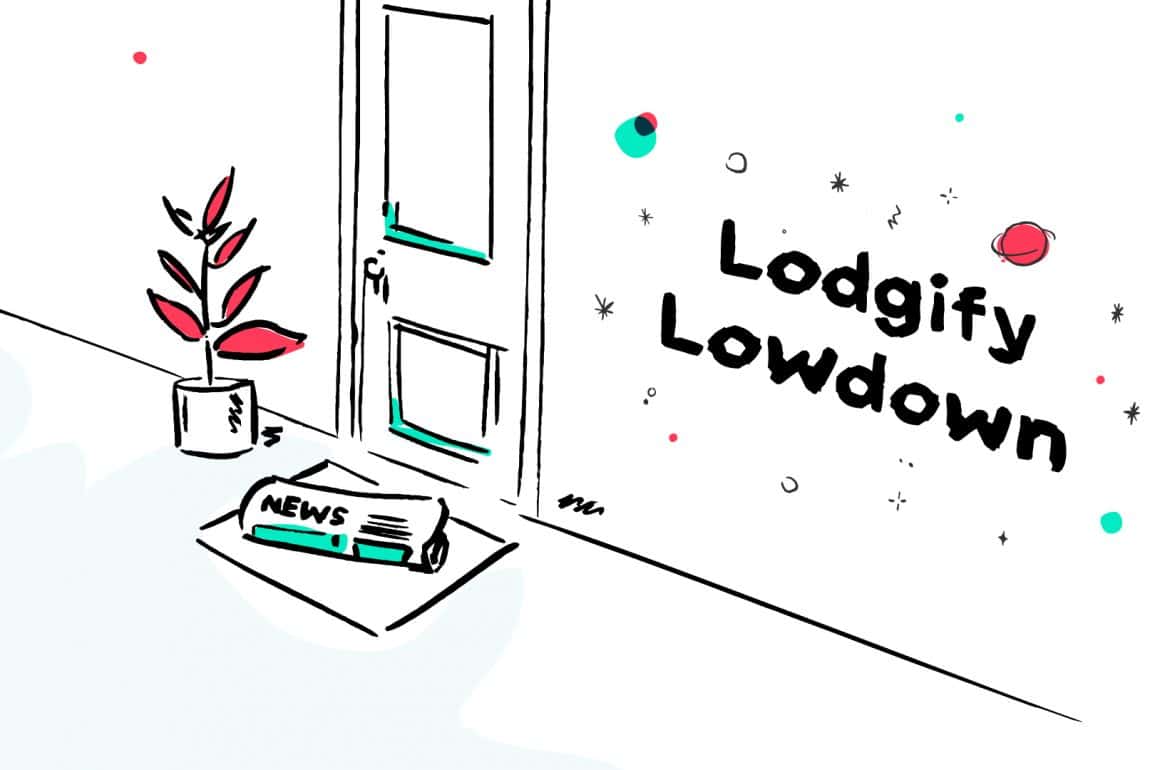Happy Canada Day, early Independence Day, and beginning of July! Whatever you celebrate, wherever you are in the world, and whether you’re in your peak season or just doing business as usual, we’re here with some quick updates to get you up to speed on the vacation rental industry.
The industry is abuzz with chatter about Barcelona’s recent short-term rental ban, so we’ll give you the full scoop on this as well as other important legislation. We’ll also take a look at a couple updates from Airbnb and introduce you to several new companies that have launched in the industry.
Let’s dive in.
Your monthly rules and regulations roundup
The end of short-term rentals in Barcelona
On June 21, Barcelona Mayor Jaume Collboni announced plans to shut down all short-term rentals in the city by November of 2028. More specifically, the city will revoke all existing licenses for tourist apartments and stop issuing new ones, effectively halting operations for Barcelona’s 10,000 existing short-term rentals.
This move is an attempt to address the local housing shortage and soaring rental prices caused by overtourism, issues plagued by major cities worldwide. However, while the issue has become a common one, Barcelona’s plan is far from average, surpassing even the strictest regulations we’ve seen so far.
Unsurprisingly, the proposal has sparked significant debate in the vacation rental industry, particularly among the Barcelona hosts who will see themselves out of business within a little more than four years.
How’s it going in New York City?
Meanwhile, New York City has approved only 2,242 short-term rental registrations under its new regulations.
This comes about nine months after the city implemented its controversial Local Law 18 last September, which introduced new registration requirements and regulations. Per the new law, stays are capped at 30 days and two guests, hosts must be present, and guests must have access to all parts of the unit.
The city has finally processed 99.5% of the registration applications it has received since introducing the new requirements, approving only 35.4% of them. Of the 6,328 applications submitted, the city denied 1,595 (25.2%) and returned 2,460 (38.9%). Returned applications are those that were incomplete or incorrect, and can be corrected and resubmitted.

Considering that there were around 40,000 listings in New York City in January 2023, these numbers are a clear sign of the reduction of the city’s short-term rental supply, even if registered hosts can have multiple listings.
So, has the law paid off? It depends on who you ask. Illegal listings have certainly been slashed, but some suggest there’s been no increase in affordable housing. What’s more, hotel prices are through the roof, and former hosts who fail to meet the registration requirements are struggling to keep their homes.
Brisbane proposes new permit requirements
Brisbane has entered the regulation arena as well, with the proposal of a new permit requirement for short-term rental hosts.
Under the new proposal, the City Council will only approve permits that are “appropriate” and have correct planning approvals and body corporate support. Property owners will also need a 24/7 property manager to be approved.

Like in so many other cities, this legislation is intended to improve the affordable housing supply for the residential community. More than 420 existing short-term rentals that fail to meet the new requirements will be transitioned to long-term housing.
More specifics will likely come once the law has final approval from the state government.
New legislation now in effect in California
In case you missed it last month, this is just a reminder for California hosts that new legislation takes effect on July 1:
- California Assembly Bill 537 bans advertising, displaying, and offering rates that do not include all fees and charges for vacation rental lodging (except for fees and taxes that are government-imposed).
- California Senate Bill 478 makes it illegal to advertise, display, or offer rates for any good or service that don’t include all mandatory fees (again, except for those that are government-imposed).
- California Senate Bill 644 requires hosting platforms, third-party booking services, and hotels to permit cancellations for at least 24 hours after reservation confirmation with no penalty to the guest.

The gist: Starting July 1, California vacation rental hosts will need to include cleaning and other “junk” fees in advertised rates in an effort to promote fee transparency. You’ll also need to allow free cancellations for 24 hours after reservations are confirmed.
Airbnb news
Hasta la vista, California junk fees
To align with two of the new laws we mentioned above, Airbnb will now show the total cost of stays upfront in California. California Assembly Bill 537 and Senate Bill 478 make it illegal to advertise any rates that don’t include all mandatory fees in an attempt to promote fee transparency.
To comply with these laws, Airbnb will now include “junk fees” such as service fees and host cleaning fees in the total price, and advertise the total price instead of the nightly rate.
As you’ll see below in the image on the left, the default display in the U.S. shows the nightly rate in bold, followed by the total price before taxes in a lighter font. The image on the right shows the new price display in California, which highlights the total price before taxes.

A look at the top July 4th trends
With the Fourth of July right around the corner, Airbnb has unveiled its top 10 trending destinations for the holiday weekend. These destinations are known for their scenic landscapes and, in no particular order, include:
- Pocono Township, PA
- Saratoga Springs, NY
- Marshfield, MA
- Leadville, CO
- Bangor, ME
- Lancaster, CA
- Cle Elum, WA
- Wenatchee, WA
- Sanibel, FL: Sanibel Island, FL
- Fort Myers Beach, FL
Airbnb also released an interactive map highlighting the most wishlisted listings across all 50 states, as well as a selection of some of the most wishlisted homes with barbecues or firepits. (After all, it’s not the Fourth of July without a barbecue!) You can check out both selections here.
- Source: Airbnb
The new kids on the block
Not a month goes by without new companies popping up in the industry. In June, some of those new players included a trust-based marketplace, a booking platform, a ranking management platform, and a Chrome extension:
- Trustr has launched the first-ever vacation rental marketplace designed to enable travelers and property owners that know each other to share and book recommendations for places they’ve stayed at, vetted, or own.
- b0arding.com, a next-generation hotel and vacation rental booking platform based in the U.S., has officially launched with more than two million vacation rental listings and hotels.
- Otamiser, the world’s first online travel agency (OTA) ranking management platform, has completed its first funding round with $3 million USD, which it will use to expand to 100,000 short-term rentals and 1,000 hotels worldwide.
- Directo, a Chrome extension that helps you find commission-free short-term rentals and hotels, has raised $1 million in pre-seed fundraising and come out of stealth mode for its launch in the U.S.
We’re excited to see what’s next for these new companies and how they’ll shape the industry!
See you next time
And that’s a wrap! We wish our U.S. hosts a happy Fourth of July weekend and everyone else a strong start to July. We’ll be back in a month with more industry news!



